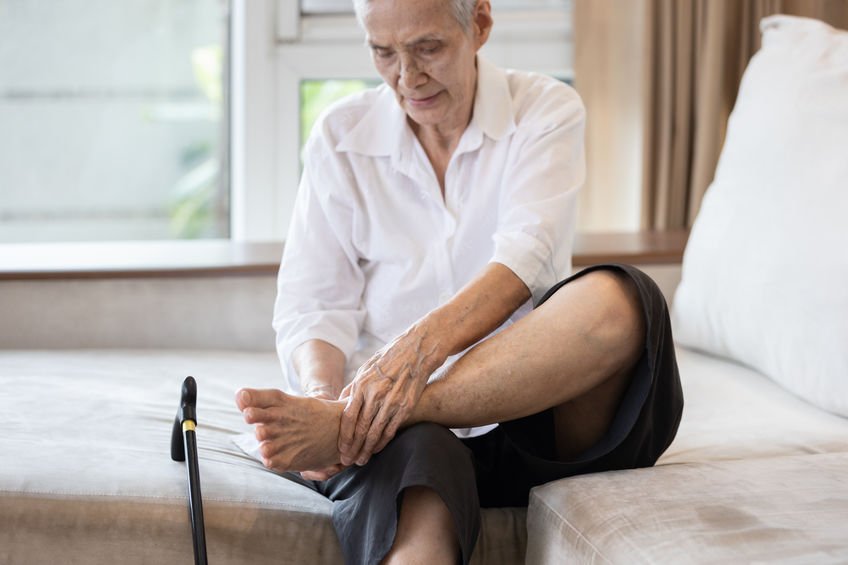
Foot health in older adults is an incredibly important aspect of general health. Foot health can be a challenge for many older adults due to the lack of education, support, and counsel. Healthy feet in adults overall encompasses aspects of self-care, staying active and sometimes even medical intervention. In this 2017 focus-group study, it is defined that proper foot self-care includes nail and skin care, washing and drying the feet each day, doing foot exercises, and wearing socks and shoes that fit and are made of appropriate materials. As we age, feet become more essential to the function of everyday life and can raise more health issues.
Some common foot issues as we age can include diminished circulation, structural changes, nail health and diabetes related damages. Since the fat pads are known to decrease with age, known as fat pad atrophy, it can complicate things within the skin and lead to more pain at the end of the day. A recommendation given by Foot HealthCare Associates for fat pad atrophy ranges from molded foot orthoses with padding, cushioned socks, heel cups and to more invasive surgeries. Addressing fat pad atrophy is very imperative to reducing bone breaks and injuries. When it comes to the actual toenails on the feet, multiple problems can arise bringing unwanted fungus, dryness, ingrown nails, and clubbing. These are all symptoms of aging and the importance to recognize early foot issues so treatment can begin, if necessary.
This wouldn’t be a blog post about foot health if we didn’t mention diabetes and the effects it has on feet. It is likely that if you suffer from diabetes with age, foot problems become more prevalent. Diabetes causes nerve damage, which can lead to numbness in feet and affect the knowledge of any injuries that may have occurred. These injuries can turn into an infection, and in severe cases possible amputation of toes and even the whole foot can occur. This is important for older adults with a diabetic condition to remember because it emphasizes the need for checkups and daily self-care.
Having healthy feet can have a large impact on an older adult’s well-being so it is essential to create a list of commitment to maintain healthy feet:
1. Check your feet daily
2. Wash your feet everyday
3. Make Podiatry appointments if problems arise
4. Wear the right shoes and socks
5. Keep Moving
WellPath Partners is your senior resource referral guide. Follow us on ALL social media platforms and join us weekly for more content and public health discussions.
By: Lauren Wendell
Senior Care Advising Intern at WellPath Partners
Health Science Student at California State University Long Beach
